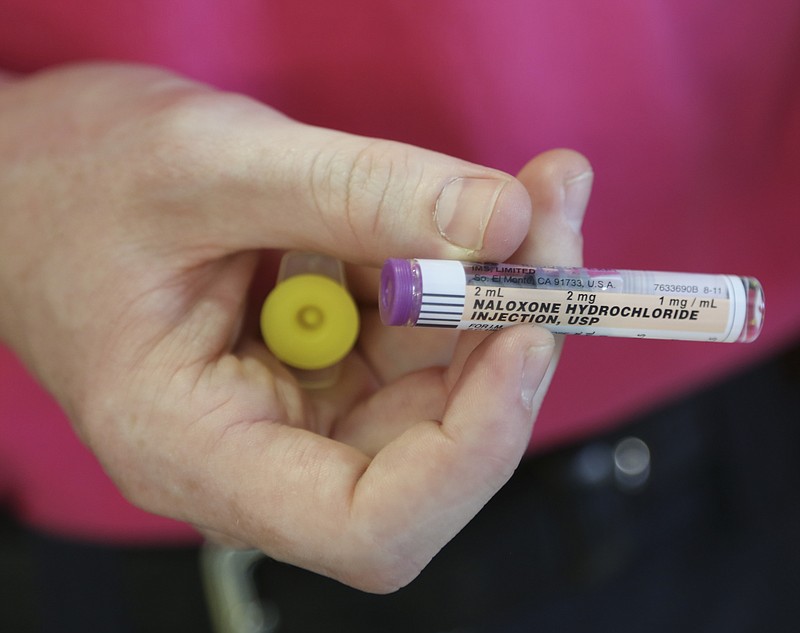The Tennessee Community CARES program awarded the Hamilton County Coalition a more than $64,600 grant to continue providing free drug overdose prevention programs to the public.
Since March, the coalition has offered its overdose prevention program and naloxone (Narcan) training virtually. The program teaches participants how opioids affect the brain, how to identify signs of overdose and how to give someone naloxone, a drug used to counteract the effects of an opioid overdose.
Since the start of the pandemic in March there have been more than 560 drug overdoses in Southeast Tennessee, an area that includes Bradley, Bledsoe, Grundy, Hamilton, Marion, McMinn, Rhea, Sequatchie, Meigs, and Polk counties, according to data from the Tennessee Bureau of Investigation.
Drug overdoses and overdose deaths in Hamilton County in 2020 are already outpacing last year's numbers. Advocates working on the issue expressed concern earlier this year that the overdose crisis was being forgotten as attention shifted to the coronavirus despite the virus pushing people to use drugs or relapse because of the stress caused by lost loved ones or job instability.
Camilla Bibbs, Hamilton County Coalition executive director, said in a statement that overdose deaths are preventable if people know the signs and have the knowledge to intervene when necessary. The current pandemic is tied to the increase in overdoses, she said.
"COVID-19 cases and overdose rates have been on the same trajectory in our region since the pandemic began," Bibbs said in the statement. "The isolation and uncertainty from the shutdown and the restrictions at jobs and schools have put people under a lot of stress. That combination of factors has certainly contributed to the increase in substance misuse."
The grant, from the Tennessee Department of Human Services, is part of a statewide program to invest $150 million in COVID-19 relief efforts in the state. The coalition is one of more than 80 nonprofits in the Chattanooga area chosen to receive a grant. Other recipients of the $24.5 million distributed through the United Way of Greater Chattanooga included The Bethlehem Center, La Paz Chattanooga and the Bradley Cleveland Public Education Foundation.
The coalition runs other drug-related programs, including handing out medication lock boxes and drug deactivation pouches.
Contact Wyatt Massey at wmassey@timesfreepress.com or 423-757-6249. Follow him on Twitter @news4mass.
